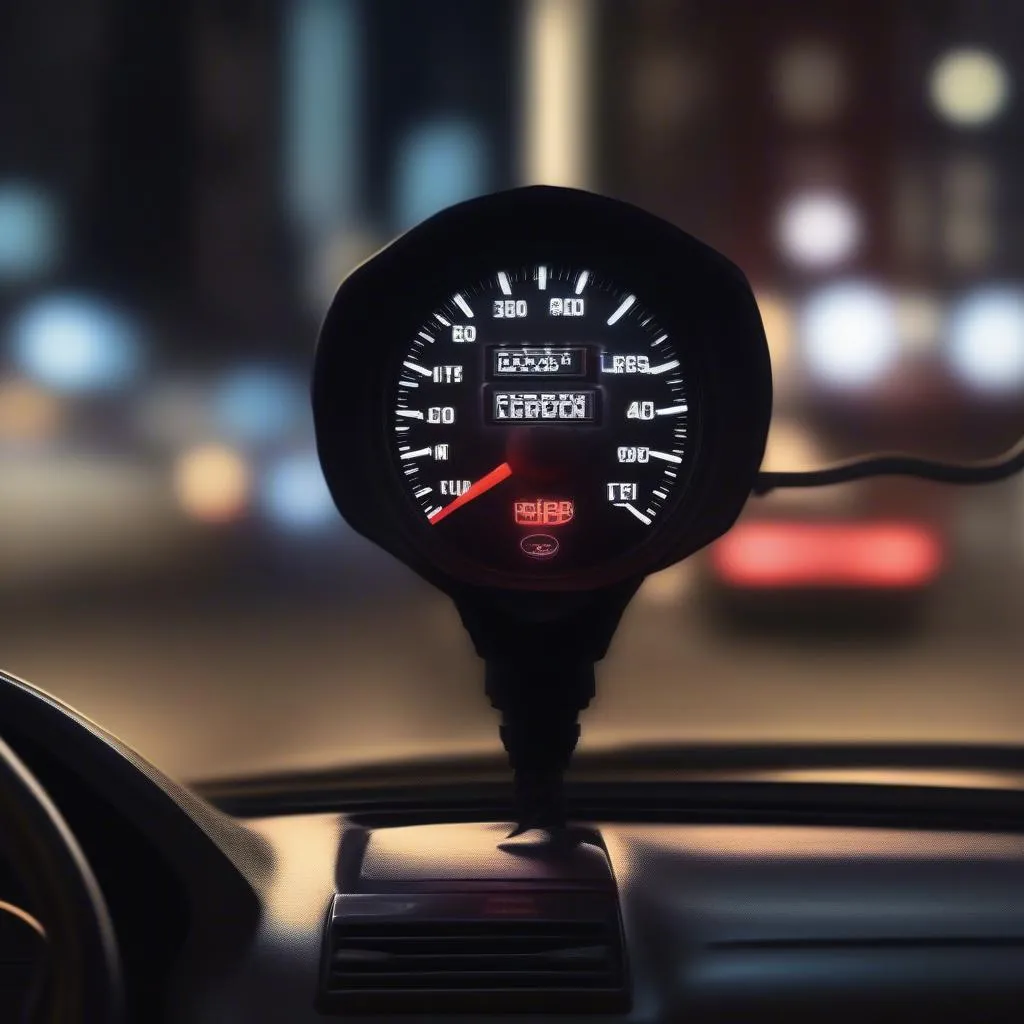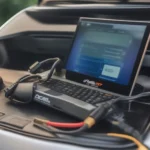Imagine this: you’re cruising down the Pacific Coast Highway in your sleek Audi A4, the California sun warming your face, when suddenly, a yellow light flickers on your dashboard – the dreaded “Check Engine” light. Your heart skips a beat. What does it mean? Is your car about to break down? Don’t panic! This scenario is more common than you might think.
Understanding the cause of a check engine light can feel like deciphering ancient hieroglyphics, but fear not, we’re here to demystify it for you. Whether you’re a car enthusiast or simply want to avoid a hefty mechanic’s bill, this comprehensive guide will equip you with the knowledge to tackle that enigmatic check engine light head-on.
Decoding the “Check Engine” Light: What Does it Mean?
Let’s break down the significance of this often-misunderstood warning light from different perspectives:
1. The Mechanic’s Perspective: For seasoned mechanics like Robert Hernandez from Bob’s Auto Repair in Chicago, “The check engine light is like your car’s way of raising its hand in class and saying, ‘Excuse me, I think something’s wrong.'” It’s a signal from your car’s computer, the Engine Control Unit (ECU), that something isn’t quite right.
2. The Technical Angle: From a technical standpoint, the check engine light indicates that the ECU has detected a problem within one of the many sensors and systems it monitors, including engine performance, emissions control, and transmission function.
3. The Financial Implication: Ignoring a check engine light can be a costly mistake. Early detection of a minor issue can save you from major (and expensive) repairs down the road. Think of it as a stitch in time saves nine for your car.
What Triggers that Yellow Glimmer? Unmasking Common Culprits
Now that we understand what the check engine light signifies, let’s explore some of the most frequent offenders behind its illumination:
1. Faulty Oxygen Sensor (O2 Sensor): This sensor plays a critical role in monitoring the oxygen content in your car’s exhaust, ensuring optimal fuel combustion and minimizing harmful emissions. A malfunctioning O2 sensor can negatively impact your car’s fuel economy and performance.
2. Loose or Damaged Gas Cap: As trivial as it sounds, a loose, damaged, or missing gas cap can trigger the check engine light. It disrupts the pressurized fuel system, leading to fuel evaporation and increased emissions.
3. Malfunctioning Catalytic Converter: The catalytic converter plays a crucial role in reducing harmful emissions from your car’s exhaust. A failing catalytic converter can significantly impact engine performance and result in costly repairs.
4. Worn-out Spark Plugs: Spark plugs ignite the fuel-air mixture in your engine cylinders, enabling combustion. Worn-out spark plugs can cause misfires, reduced engine power, and decreased fuel efficiency.
5. Faulty Mass Air Flow (MAF) Sensor: The MAF sensor measures the amount of air entering the engine to ensure the correct air-fuel mixture for optimal performance. A malfunctioning MAF sensor can lead to poor acceleration, rough idling, and increased emissions.
Beyond the Usual Suspects: Other Potential Causes
While the aforementioned culprits are the most common triggers, several other factors can illuminate the check engine light:
- Faulty Evaporative Emission Control System (EVAP): The EVAP system prevents fuel vapors from escaping into the atmosphere. A leak or malfunction in this system can trigger the check engine light.
- Transmission Problems: Issues with your car’s transmission, such as slipping gears or a malfunctioning solenoid, can also trigger the check engine light.
- Vacuum Leaks: Leaks in the engine’s vacuum system can disrupt various functions and lead to a check engine light.
Taking Action: How to Approach a Check Engine Light
Seeing that yellow light illuminate can be unsettling, but it’s crucial to address it promptly. Here’s a step-by-step guide:
-
Don’t Panic: While the check engine light often indicates a minor issue, it’s essential to avoid ignoring it.
-
Assess Urgency: If the check engine light is flashing, it indicates a serious problem requiring immediate attention. Pull over safely and contact a mechanic immediately.
-
Retrieve the Diagnostic Trouble Code (DTC): To pinpoint the exact issue, you’ll need to retrieve the DTC stored in your car’s ECU. This can be done using a diagnostic scanner, which you can purchase or find at most auto parts stores. Alternatively, many mechanics will perform a diagnostic scan for a small fee.
-
Research the Code: Once you have the DTC, you can research its meaning online or consult a repair manual. This will give you a better understanding of the potential problem.
-
Consult a Mechanic: While some issues may be simple enough to address yourself, it’s generally advisable to consult a qualified mechanic, especially for complex problems.
Preventing Future Check Engine Light Surprises:
Prevention is always better than cure. Here are some proactive measures to keep that check engine light at bay:
- Adhere to Regular Maintenance: Regular oil changes, air filter replacements, and spark plug replacements can prevent many common check engine light triggers.
- Inspect Your Gas Cap: Ensure your gas cap is secure after every fill-up.
- Address Issues Promptly: Don’t ignore warning signs like unusual noises, smells, or performance issues. Addressing these early can prevent more significant problems down the line.
Still Have Questions? We’re Here to Help!
Navigating the world of car repairs can be daunting, but remember, you’re not alone! If you’re still unsure about the cause of your check engine light or need assistance with repairs, don’t hesitate to reach out.
Contact our team of automotive experts via WhatsApp at +84767531508. We’re available 24/7 to provide guidance and support for all your car diagnostic tool needs.
Explore Further:
Want to delve deeper into car diagnostics and repairs? Check out these informative articles:
- Check Engine Light Causes
- What Can Cause a Check Engine Light to Come On?
- Car Computer Check
- How to Get Check Engine Light Code
- Why Did My Engine Light Come On?
We’re here to empower you with the knowledge to keep your car running smoothly. Safe travels!


